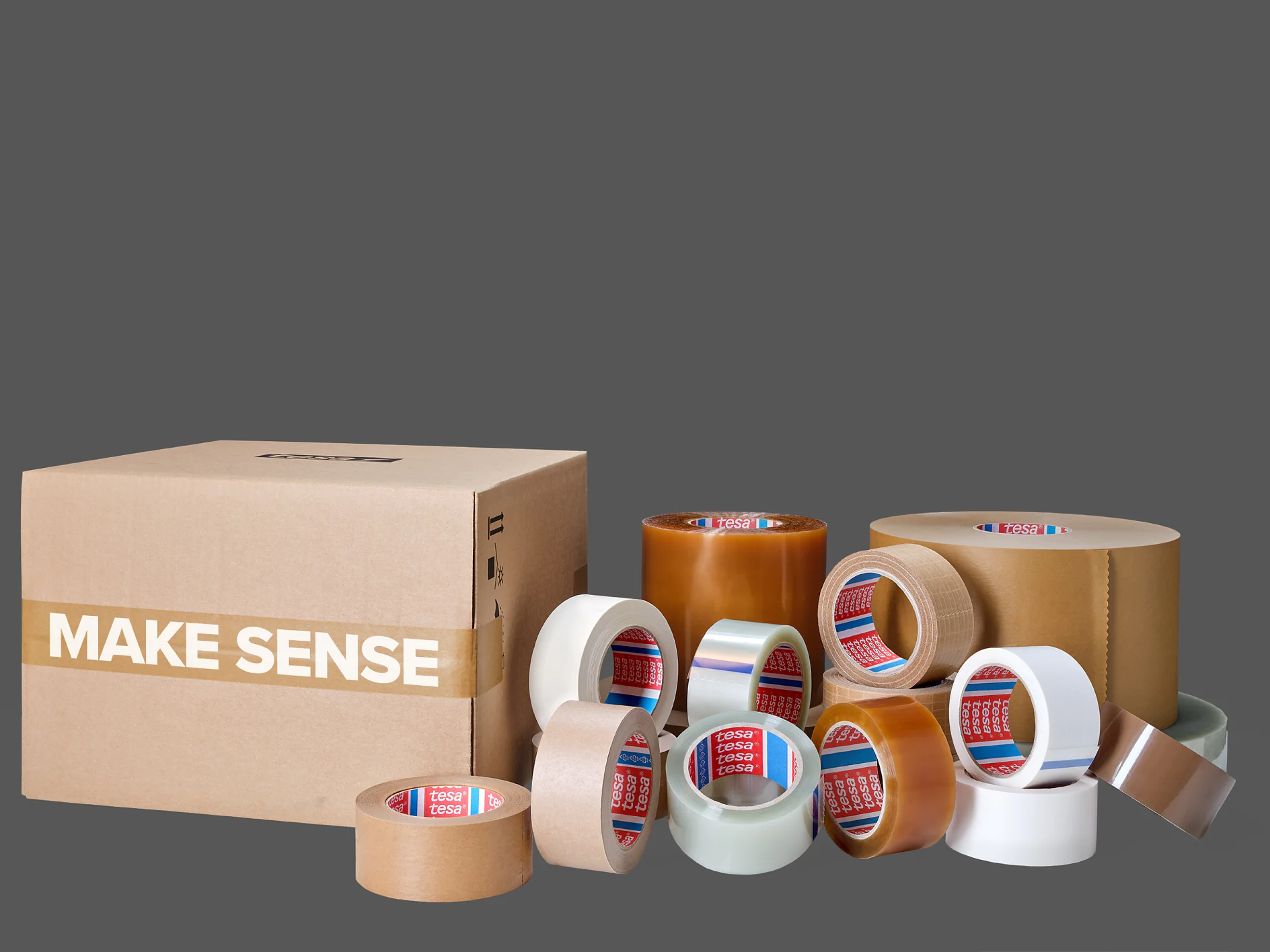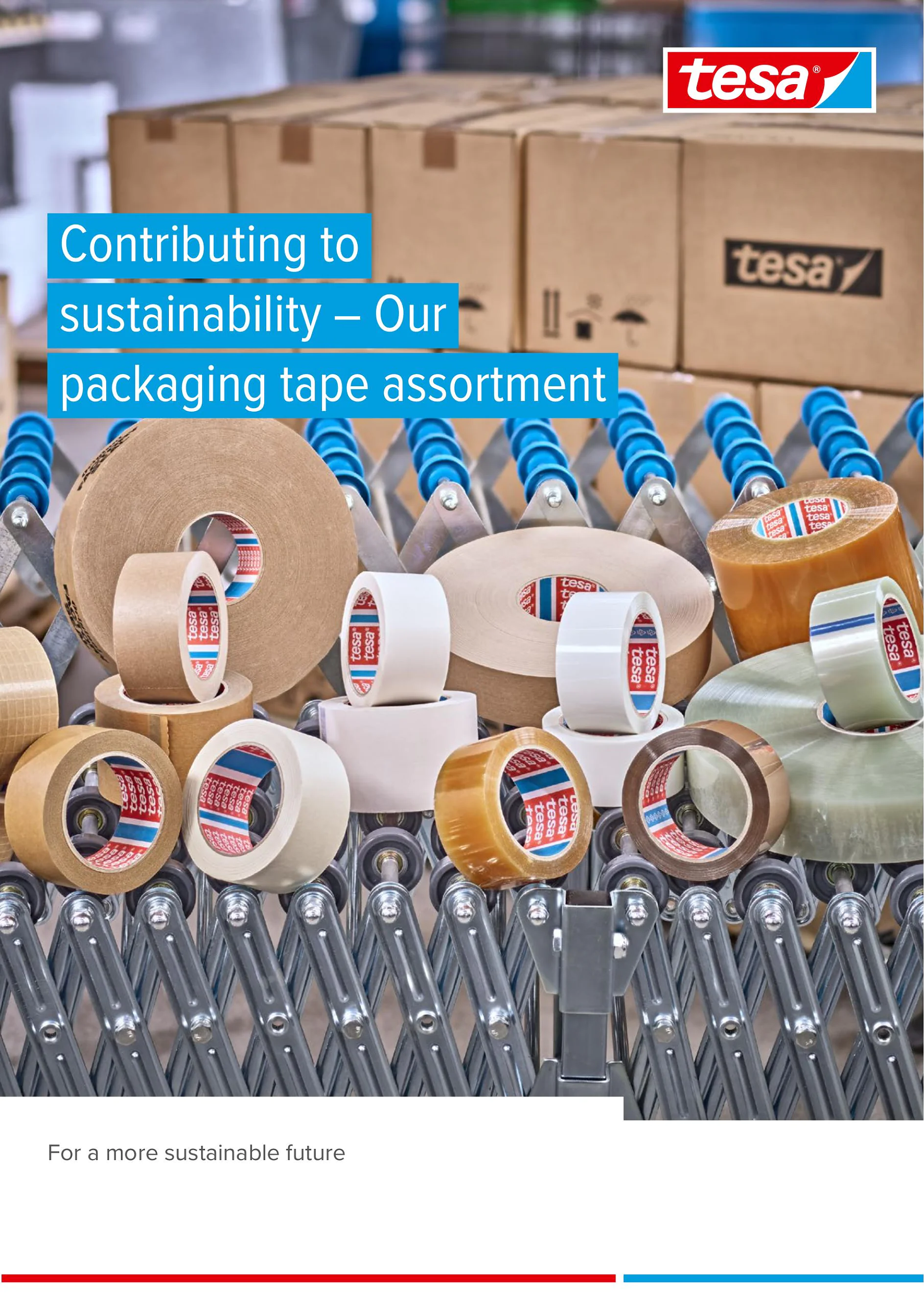Adhesive tapes might not be the first thing you think of when it comes to greater sustainability. But why wouldn’t you choose a more sustainable adhesive tape if you had the choice?
Our comprehensive range of more sustainable packaging tapes combines support for your sustainability targets with the strength of our assured high-performance reliability.
Let’s take the step towards a more sustainable future together. It makes sense.


